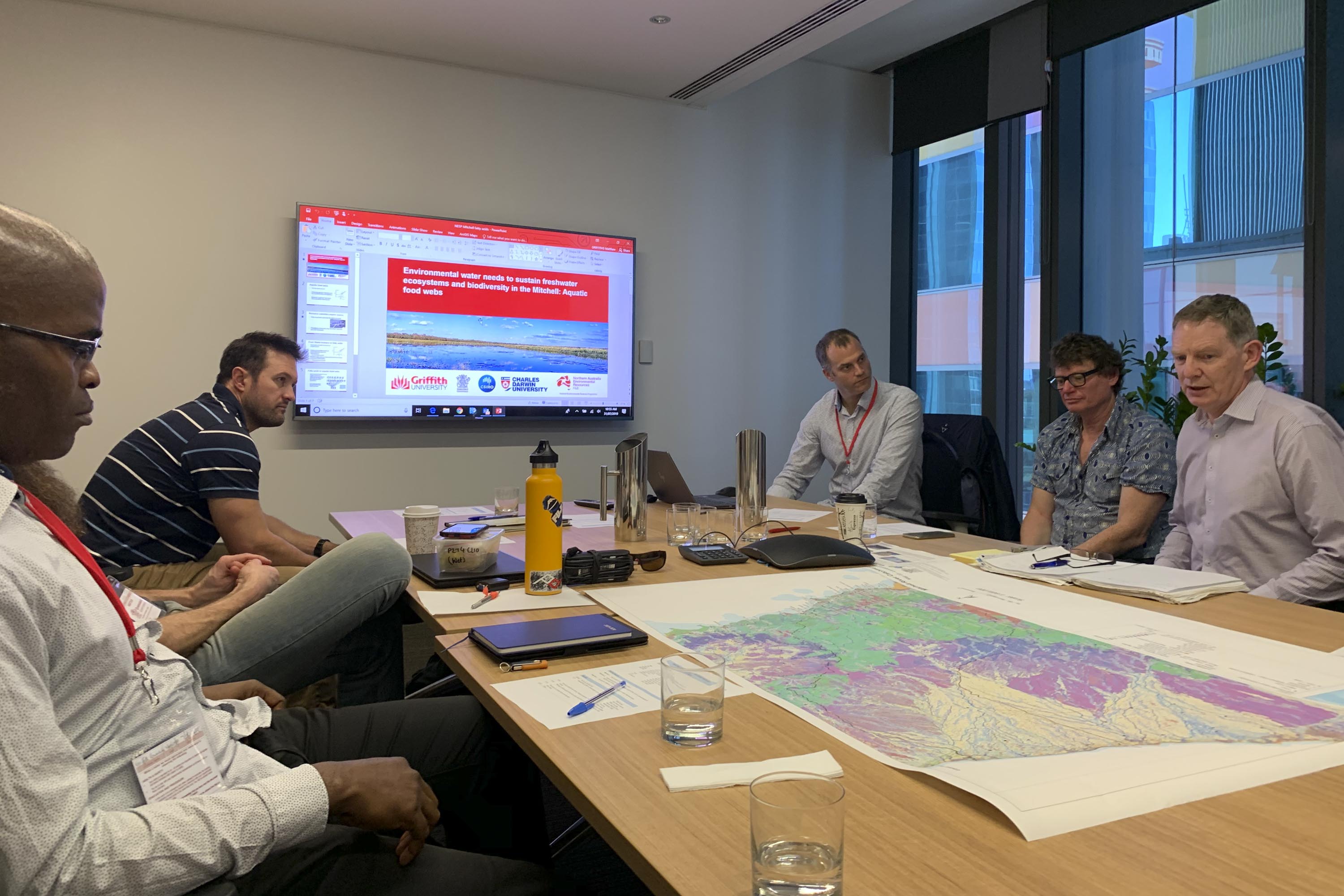13 September 2019
Research projects produce a wealth of important information, but sharing science in an accessible way can be a challenge.
As fieldwork for the Environmental water needs for the Mitchell River project draws to a close, researchers are planning for accessible communications products to showcase research findings, such as how barramundi and other species move through the catchment and how catchment rainfall contributes to floodplain inundation. The team is looking to Queensland’s Department of Environment and Science (DES) WetlandInfo website for ideas.
At a recent workshop between the project team and DES, Hub researchers – led by Griffith University’s Professor Stuart Bunn and Dr Ben Stewart-Koster – discussed how findings will be presented and accessed by Traditional Owners, land managers, policy-makers and other researchers.
Enter WetlandInfo’s Catchment Stories – a visual mapping and story-telling platform that may offer an engaging way to share the science from the Mitchell, creating the first science-synthesis catchment story and the first Gulf river story on the site.
Hub researchers and staff will join the WetlandInfo team for training so they can use the Catchment Stories platform to share this and other research with the public.

Want to know more about the Resilient Landscapes Hub's activities and our research into practical solutions to environmental problems? Stay informed about activities, research, publications, events and more through the Hub newsletter.